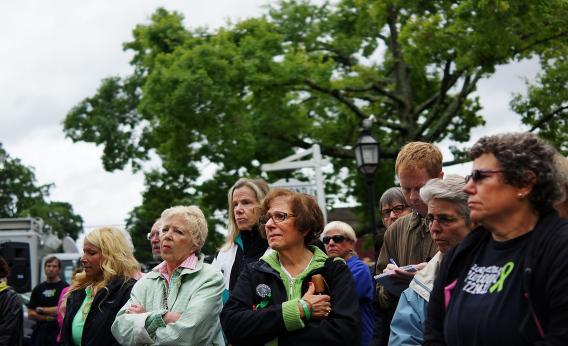The foundation tasked with divvying up the $11.4 million dollars in donations that poured into Newtown in the wake of the Sandy Hook Elementary School shooting is out with its preliminary recommendations for the cash. The top-line number: The 26 families of those killed in the shooting would each receive $281,000 under the plan.
The Newtown-Sandy Hook Community Foundation had already made the somewhat controversial decision that 30 percent of the cash would be set aside for undefined community needs, such as future mental health care, a permanent memorial for the victims, or scholarships for Sandy Hook students. But on Thursday the group offered a more complete breakdown of the larger slice of the pie that will be shared by those directly affected by the massacre. NBC News with the numbers:
The plan calls for 95 percent of the $7.7 million to go to the families of deceased victims, with the remaining 5 percent reserved for two people who were injured during the shooting and the families whose children witnessed the attack.
The 26 families of the deceased will each receive $281,000 under the plan. The two injured may receive a total of $150,000, while those whose children witnessed the shooting may receive $20,000 each. The proposal states that 12 families are eligible to claim their children witnessed the shooting.
Not everyone’s happy with the decision, of course, with some questioning how the 70/30 split came about in the first place. As NBC News notes, some family members have complained about the lack of transparency in the decision-making process, and are asking for an independent figure to oversee the fund.
But, as attorney Kenneth Feinberg explained, that’s par for the course in these type of no-win situations. “Is the money adequate? Of course not,” said Feinberg, who worked on the September 11th Victim Compensation Fund. “No amount is adequate to deal with these horrors. Money is a pretty poor substitute but that’s what we have. Solomon himself could not distribute this money in a fashion that would please everybody.”
